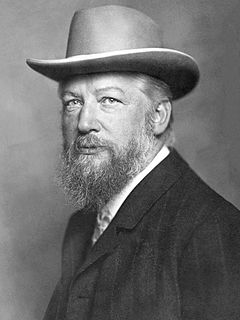A Quote by Harriet Beecher Stowe
General rules will bear hard on particular cases.
Related Quotes
When certain concepts of TeX are introduced informally, general rules will be stated; afterwards you will find that the rules aren't strictly true. In general, the later chapters contain more reliable information than the earlier ones do. The author feels that this technique of deliberate lying will actually make it easier for you to learn the ideas. Once you understand a simple but false rule, it will not be hard to supplement that rule with its exceptions.
Born in other countries, yet believing you could be happy in this, our laws acknowledge, as they should do, your right to join us in society, conforming, as I doubt not you will do, to our established rules. That these rules shall be as equal as prudential considerations will admit, will certainly be the aim of our legislatures, general and particular.
There is a great difference, whether the poet seeks the particular for the sake of the general or sees the general in the particular. From the former procedure there ensues allegory, in which the particular serves only as illustration, as example of the general. The latter procedure, however, is genuinely the nature of poetry; it expresses something particular, without thinking of the general or pointing to it.
I think the rules in Congress, and in particular the rules in the Senate, are unbelievably archaic and slow-moving and, in many cases, unfair. In many cases, you're forced to make deals that are not the deal you'd make. You'd make a much different kind of a deal. You're forced into situations that you hate to be forced into.
Our submission to general principles is necessary because we cannot be guided in our practical action by full knowledge and evaluation of the consequences. So long as men are not omniscient, the only way in which freedom can be given to the individual is by such general rules to delimit the sphere in which the decision is his. There can be no freedom if the government is not limited to particular kinds of action but can use its powers in any ways which serve particular ends.
History has got a lot to do with unique circumstances under certain particular cases and grand theories will always find counter cases. I don't think that people whose expertise lies in one thing should try to make grand theories about something (a) where it's very hard to get the evidence to prove that you're right and (b) where it's much too easy to make up stories that seem right.
Strategy is a system of makeshifts. Is is more than a science. It is bringing knowledge to bear on practical life, the further elaboration of an original guiding idea under constantly changing circumstances. It is the art of acting under the pressure of the most demanding conditions...That is why general principles, rules derived from them, and systems based on these rules cannot possibly have any value for strategy.
The laws of thermodynamics may be regarded as particular cases of more general laws, applicable to all such states of matter as constitute Energy , or the capacity to perform work, which more general laws form the basis of the science of energetics, a science comprehending, as special branches, the theories of motion, heat, light , electricity , and all other physical phenomena.
Money cannot be applied to the *general welfare*, otherwise than by an application of it to some *particular* measure conducive to the general welfare. Whenever, therefore, money has been raised by the general authority, and is to be applied to a particular measure, a question arises whether the particular measure be within the enumerated authorities vested in Congress. If it be, the money requisite for it may be applied to it; if it be not, no such application can be made.
The issue is not whether there are horrible cases where the penalty seems "right". The real question is whether we will ever design a capital system that reaches only the "right" cases, without dragging in the wrong cases, cases of innocence or cases where death is not proportionate punishment. Slowly, even reluctantly, I have realized the answer to that question is no- we will never get it right.



































